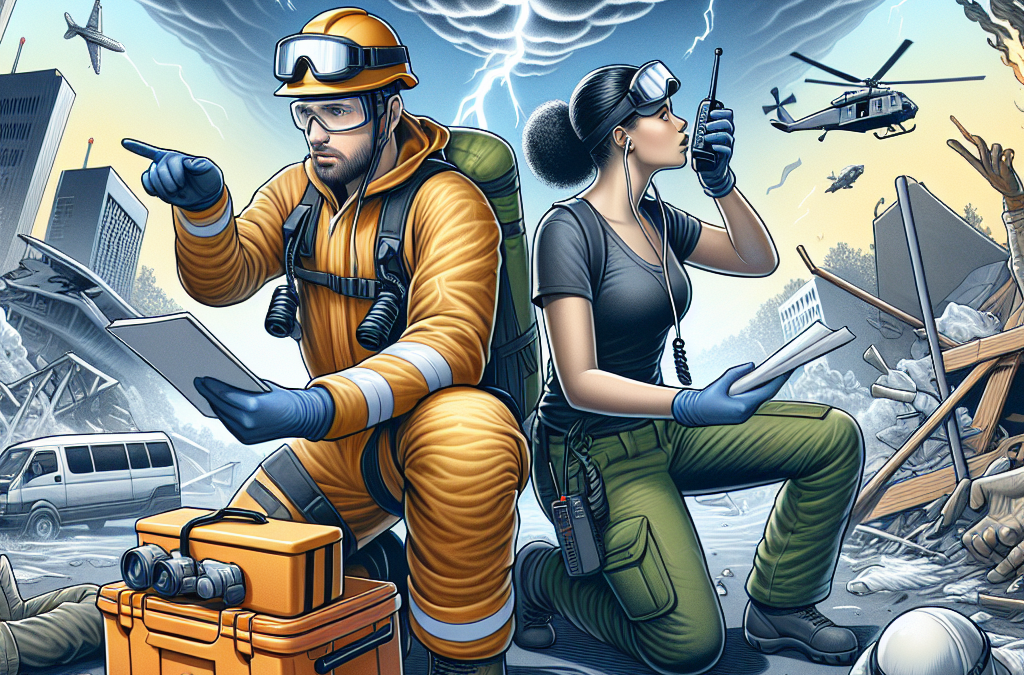Stay Calm and Assess the Situation
Taking a Moment to Breathe
When disaster strikes, the first thing you want to do is take a deep breath. I know it sounds cliché, but seriously, staying calm is key. Panic can lead to poor decisions, and in a crisis, we need our minds working at full capacity. I remember during a storm warning, I found myself glued to the weather app, but pausing for a moment really helped me think through my next steps.
Assessing the situation means figuring out what just happened. Was it a natural disaster like an earthquake or a man-made incident? Understanding the nature of the disaster can help create a response plan. After you’ve paused, ask yourself what you need to react properly. Clarity leads to better decision-making.
Talking to others around you can also help. Sharing information can ground you and provide multiple perspectives on what to do next. In my experience, even just chatting with a neighbor with more experience in emergencies helped me assess my own situation better.
Ensure Safety First
Find a Safe Location
Your safety and the safety of those around you should be the top priority. Whether that means moving to a sturdier building during an earthquake or getting away from rising floodwaters, knowing where to go is crucial. I learned this the hard way during a minor flood in my area; I didn’t move fast enough and wound up dealing with a soggy mess in my home.
Look for designated safe spots around you. It’s good to know local evacuation routes and shelters in advance, so you’re not scrambling during a disaster. Trust me, the last thing you want is to find yourself in a panic, surrounded by unfamiliar terrain, with no idea where to go.
Once you’ve secured a safe spot, check on those around you. Making sure your loved ones are out of harm’s way can alleviate some stress. I can’t tell you how many times keeping tabs on family and friends has helped calm my nerves in emergencies.
Thank you for reading this post, don't forget to subscribe NOW for FREE!
Emergency Kit Preparedness
Gather Essentials Beforehand
Believe me when I say that an emergency kit can be a lifesaver. Before a disaster strikes, take the time to gather essentials like water, non-perishable food, first-aid supplies, flashlights, and batteries. These items seem trivial until you actually need them. I put mine together after spending a night without power, and I definitely learned my lesson!
Storing everything in a waterproof container is also a smart move. You never know when floods or heavy rain can hit. In my experience, I’ve seen how a well-organized kit made a stressful weather event so much easier to handle.
Don’t forget to refresh the supplies in your kit regularly! I always say it’s like changing the batteries in your smoke detectors—an annoying job, but oh so necessary. Check expiration dates and swap out items that’ve gotten stale or expired so you’re always ready to roll.
Stay Informed
Use Trusted Sources for Updates
In a crisis, staying informed can mean the difference between safety and danger. I always rely on trusted news sources and government advisories when something goes down. Social media can be useful, but it’s a double-edged sword—rumors spread like wildfire, so stick to verified channels.
Weather apps and emergency alerts on phones can also provide real-time updates. It’s like having a lifeline at your fingertips. Personally, I never thought to turn on alerts until I missed a critical update during a storm. Now, I feel more secure having that info ready.
Another smart tactic? Engage with community forums or local groups. Sometimes, people share information faster than the news. I’ve found that connecting with neighbors through apps like Nextdoor can keep me well-informed about what’s actually happening around me.
Communicate and Plan Ahead
Create a Family Communication Plan
One thing I can’t stress enough is the importance of communication. When everyone is scattered during a disaster, having a plan in place is crucial. Sit down with your family and discuss where to meet if you are separated. Make sure everyone knows how to contact one another. I learned through experience that having a designated meeting spot can save a lot of anxiety!
Consider everyone’s comfort with technology. Not everyone will have phones or service. I always tell my friends that texting sometimes works better than calling during emergencies. It’s just one of those things to try out when the services are strained.
Regularly reviewing and practicing the plan can make all the difference. Even doing a quick role-play can remind everyone what to do if the situation arises. Trust me; having that muscle memory can help you stay calm under pressure!
FAQ
- What should I do first in a disaster? – First, stay calm and assess your surroundings. This helps you comprehend the situation accurately.
- How can I prepare an emergency kit? – Gather essentials like water, food, first aid supplies, and flashlights. Ensure everything is in a waterproof container.
- What communication methods should I use? – Stick to trusted sources for updates, engage in community forums, and have a family communication plan in place.
- How can I ensure my loved ones are safe? – Check on them immediately after a disaster, and make sure everyone understands the safety plan.
- Should I practice my emergency plan? – Absolutely! Regularly revisiting your plan with family can help all members feel prepared and reduce panic.






